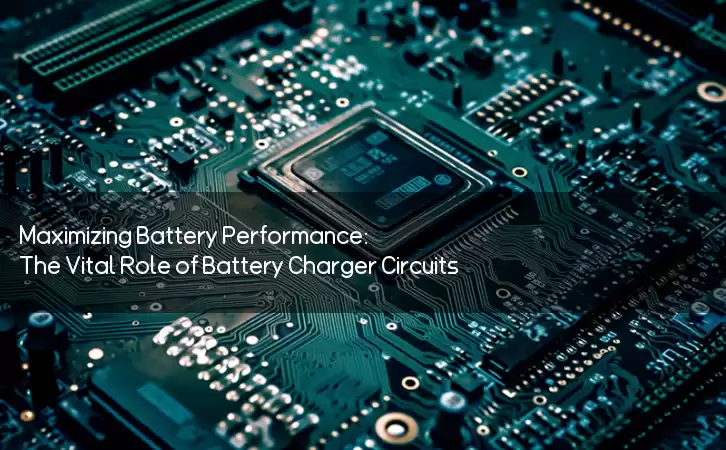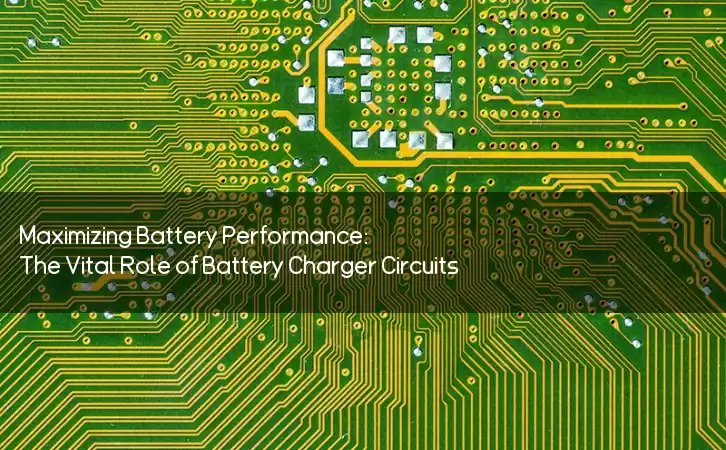Information Center
Maximizing Battery Performance: The Vital Role of Battery Charger Circuits
Published:2023-08-17 10:35:00 Author:Green WCND Views:119A battery charger circuit is a crucial component in the field of electronics, as it’s responsible for providing power and energy to many devices we use daily. A battery charger circuit is an electronic device that converts AC voltage into DC voltage and charges a battery connected to it.

Battery charger circuits come in a variety of shapes and sizes, catering to the specific needs of different devices. These circuits can be classified based on the types of batteries they can charge, the charging method, and their power rating. The most commonly used classifications are trickle chargers, fast chargers, and smart chargers.

Trickle chargers are used to charge small batteries that are used in devices such as remote controls and toys. These chargers charge batteries at a low rate, which is referred to as trickle charging. Trickle charging ensures that the battery is fully charged and not overcharged, which can lead to battery damage or reduced battery life.
Fast chargers, as the name suggests, are designed to charge batteries quickly. These chargers are commonly used in mobile phones, laptops, and other similar devices. Fast chargers use high charging currents and voltages to charge the battery quickly. However, fast charging often generates heat and can cause battery degradation if not done correctly.
Smart chargers are designed to charge batteries intelligently by monitoring the battery’s voltage, current, and temperature. These chargers adjust the charging rate to maximize the battery’s performance and life. Smart chargers are commonly used in electric vehicles and other devices that use large batteries.
Battery charger circuits can be built using various components, including diodes, capacitors, transformers, voltage regulators, and resistors. The components used depend on the charging method and the battery’s requirements. For example, charging a lead-acid battery requires different components than charging a lithium-ion battery.
In conclusion, battery charger circuits are an essential component in the electronics industry, providing energy to many devices we use daily. The design and construction of battery charger circuits play a vital role in maximizing battery performance and prolonging battery life. As technology continues to advance, the demand for better and more efficient battery charger circuits continues to grow, ensuring an uninterrupted power supply to our devices.
Power Adapter Design and Customization Guide for Portable Electric KettlesI. Common Design Types for Portable Electric Kettle Power AdaptersPortable electric ke···
I. Common Design Types of Power Adapters External Independent Type (Most Common) Design: A standalone adapter (e.g., "black brick") connected to the p···
Handheld Vacuum Cleaner Power Adapter Selection GuideIntroductionHandheld vacuum cleaners have become a mainstream tool for household cleaning due to their port···
Drill Power Adapter Selection Guide.drill-container { font-family: Arial, sans-serif; line-height: 1.6; max-width: 800px; margin: 0 auto; padding: 20px; } .dril···





